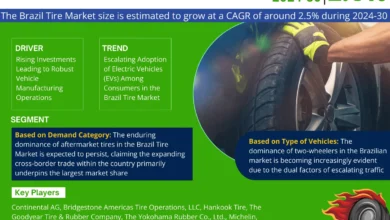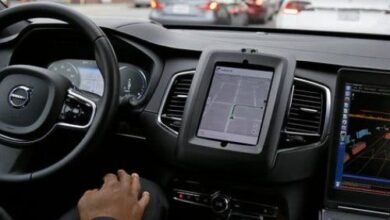Self-Driving Cars: Are We Ready to Let Them Take the Wheel?
The concept of self-driving cars, once relegated to science fiction, has rapidly become a tangible reality. Tech giants and automotive manufacturers are pouring billions of dollars into developing autonomous vehicles, promising a future revolutionized by transportation without human intervention. However, the prospect of self-driving cars raises a multitude of questions. Are we, as a society, truly prepared to hand over the wheel?
The Allure of Self-Driving Cars: A Vision of Convenience and Safety
Proponents of self-driving cars paint a compelling picture. Imagine a world free from traffic jams and accidents caused by human error. Self-driving cars promise increased efficiency, reduced congestion, and a dramatic decrease in road fatalities. These vehicles could offer enhanced mobility for the elderly, visually impaired, or those who cannot drive due to physical limitations. Additionally, the ability to work, relax, or socialize during commutes could significantly improve our quality of life.
Technological Hurdles: Overcoming the Challenges of Automation
Despite the enticing vision, significant technological hurdles remain. Self-driving cars rely on complex sensors, including cameras, radar, and LiDAR, to navigate their surroundings. These systems must be able to perceive and react to a multitude of situations in real-time, including unexpected road hazards, erratic driver behavior, and adverse weather conditions.
Furthermore, ethical dilemmas arise when programming these vehicles. How should a self-driving car react in an unavoidable accident scenario? Who is liable in the event of a crash – the manufacturer, the programmer, or is a concept of fault even applicable in a driverless world? These complex questions require careful consideration and ethical frameworks before widespread adoption.
The Human Factor: Trust and Acceptance in an Autonomous Future
Public trust and acceptance are crucial for the successful integration of self-driving cars. Many drivers express concerns about relinquishing control to a machine, particularly during emergencies or challenging road conditions. Building public trust requires a transparent development process, rigorous safety testing, and clear communication about the capabilities and limitations of this technology.
Moreover, the potential impact on jobs within the transportation sector, such as taxi drivers and truck drivers, needs to be addressed. Governments and industries must prepare for workforce transitions and develop strategies to support those whose jobs may be affected by the rise of autonomous vehicles.
For scrap car removal visit website
The Road Ahead: A Collaborative Effort Towards a Driverless Future
The development and deployment of self-driving cars necessitate a collaborative effort. Governments, technology companies, automotive manufacturers, and safety organizations must work together to establish regulations, safety standards, and infrastructure modifications to accommodate autonomous vehicles.
Continuous research and development are paramount, focusing on improving sensor technology, artificial intelligence algorithms, and cybersecurity measures to ensure the safe and reliable operation of self-driving cars. Also read
A Glimpse into the Driverless Future: Potential Benefits and Remaining Questions
While the core functionality of self-driving cars focuses on eliminating human error, the potential benefits extend far beyond accident reduction. Here are some additional possibilities:
- Environmental Impact: Autonomous vehicles programmed for fuel efficiency and optimal route planning could lead to a significant decrease in traffic congestion and emissions. This, in turn, would contribute to improved air quality and a reduced carbon footprint.
- Urban Planning: With a network of self-driving cars, cities could potentially optimize traffic flow, reduce the need for extensive parking infrastructure, and prioritize pedestrian and cyclist safety. This could lead to a more sustainable and livable urban environment.
- Increased Productivity: Time spent commuting could be transformed into productive work hours or leisure time if passengers are able to safely work, relax, or socialize during their journeys.
However, alongside the exciting possibilities, several lingering questions require exploration:
- Data Privacy: Self-driving cars will collect vast amounts of data on traffic patterns, driver behaviour, and surrounding environments. Robust regulations are needed to ensure data privacy and prevent misuse of this information.
- Cybersecurity: The potential for hacking into self-driving car systems raises serious safety concerns. Robust cybersecurity measures and ethical hacking practices are crucial to prevent malicious attacks.
- Accessibility and Equity: Ensuring equitable access to self-driving car technology for all members of society is vital. Subsidies, targeted programs, and infrastructure development may be necessary to bridge the digital divide and prevent transportation disparities. Learn more
Embracing the Future: A Measured Approach to Self-Driving Cars
The arrival of self-driving cars is not a question of if, but when. A measured approach is essential. Stringent testing, transparent communication, and ongoing public dialogue are necessary to build trust and ensure a smooth transition. By addressing the challenges head-on and harnessing the potential benefits, self-driving cars can usher in a new era of safe, efficient, and accessible transportation for all.
The future of mobility is on the horizon, and while the road ahead may be winding, with careful planning and a collaborative effort, self-driving cars have the potential to become a transformative force, shaping a future where transportation is not just about getting from point A to point B, but about creating a safer, more sustainable, and interconnected world.
visit:https://www.cashforallcarbrands.com.au/cash-for-cars-sunshine-coast/
Conclusion: A Cautiously Optimistic Outlook
While the path towards a self-driving future presents numerous challenges, the potential benefits are undeniable. By addressing technological hurdles, ethical considerations, and public concerns, we can pave the way for a future where self-driving cars coexist safely and seamlessly with human drivers. The journey may be long, but with careful planning, collaboration, and a commitment to safety, self-driving cars have the potential to revolutionize transportation and create a safer, more efficient future for all.









